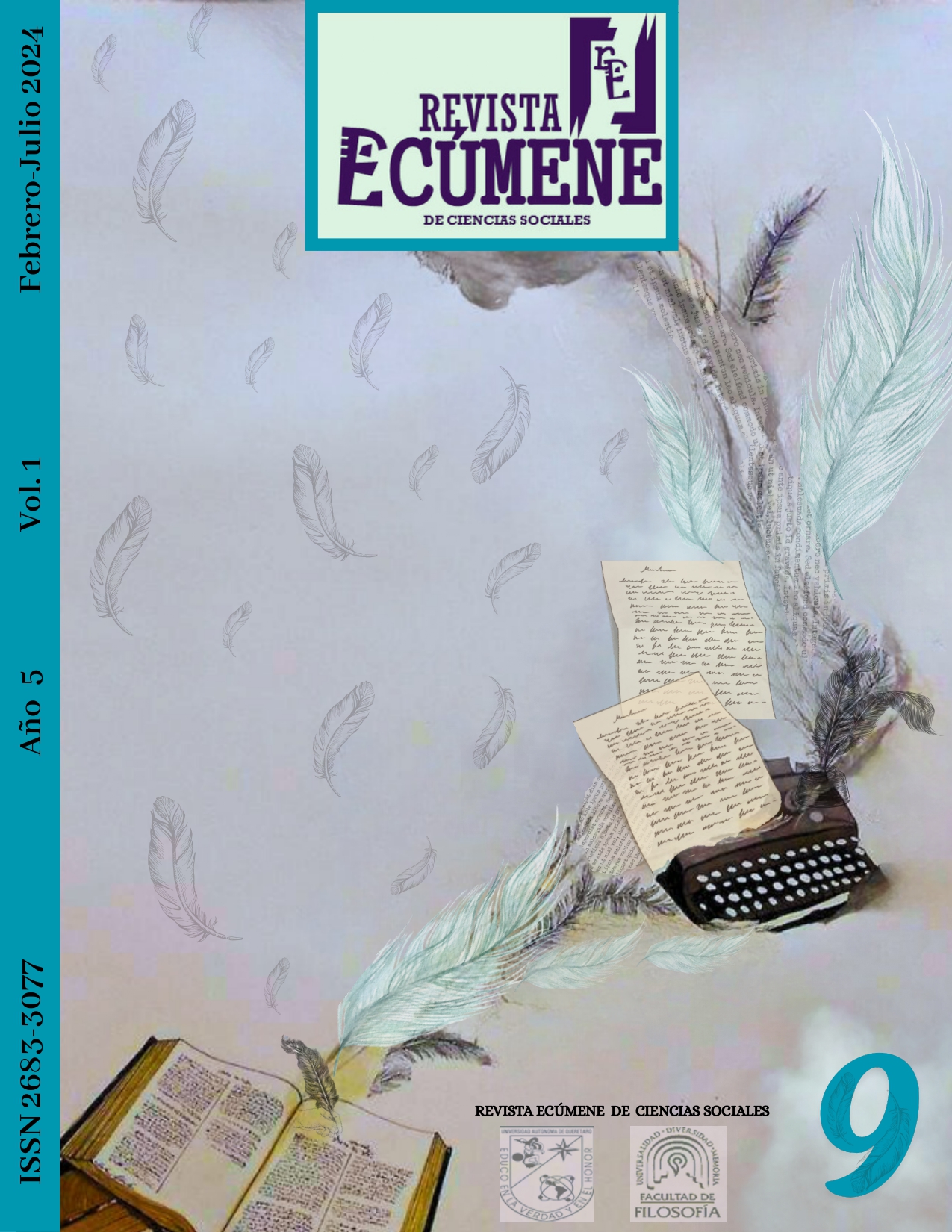Abstract
This essay offers a reflection on the cultural phenomenon of Italian Fascism of the
1920s and 1930s as a project of modernity. This, beyond political violence and the
imposition of a supposedly totalitarian regime, contemplated a promise towards the
future based on the construction of a "new civilization." In this way, some artistic
works that resort to discursive elements such as myth, strength, corporeality, youth
and virility, articulated from the fascist conception of time, are analyzed. Thus, despite
its apparent contradictions by relying on an idealized past, fascism sought to propagate the cultural guidelines of its vision of the world with firm avant-garde desires.

This work is licensed under a Creative Commons Attribution-NonCommercial-ShareAlike 4.0 International License.
Copyright (c) 2024 Revista Ecúmene de Ciencias Sociales

